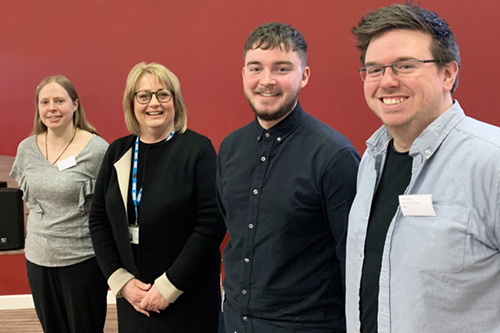NHS project extends psychological support around major incidents

NHS project extends psychological support around major incidents
Recovery College Online, part of the Tees, Esk and Wear Valley (TEWV) NHS Foundation Trust, has collaborated with Sunderland-based healthcare marketing agency IGNIFI, to provide resources and e-learning around major incidents such as acts of terrorism. The Trust has developed an online course to help community groups and other organisations prepare and plan for major incidents and importantly, to manage the trauma experienced by those directly involved.
Part funded by NHS England and supported by the North of England Clinical Network, the course was co-created alongside people with experience of mental health issues. As well as helping staff learn and making organisations more resilient, it’s hoped the course will become a valuable source of information for anyone impacted by large scale serious incidents.
“With research indicating that social support and training can lessen the impact of those exposed to trauma[1],[2], the online initiative is something we’re very proud to be part of”, commented IGNIFI Managing Director Dave Watson. “Meeting those who could benefit from the course at its official launch event in Durham underlined for us the very real difference this could make in the region, with the opportunity for a roll out across numerous agencies to support those at risk in even greater number.”
In collaboration with TEWV’s Trauma and Informed Care program, IGNIFI’s digital team optimised the course’s user experience, making it straightforward for multiple audiences ranging from the emergency services to the parents of children affected by an incident, to access and navigate different modules of content tailored to their experience.
As the project manager, TEWV’s Clinical Development Manager Lyn Williams commented: “Thanks in no small part to the significant contribution of our Peer Trainer Rhiannon Wilding, the course is widely accessible, intuitive and critically, provides a platform for the Recovery College Online to build on for future work, extending this and new programmes to better support the region’s mental and physical health needs.”
[1] Brooks SK, Dunn R, Sage CAM, Amlôt R, Greenberg N, Rubin GJ. Risk and resilience factors affecting the psychological wellbeing of individuals deployed in humanitarian relief roles after a disaster. J Ment Health. 2015;24(6):385–413.
[2] Brooks SK, Dunn R, Amlôt R, Greenberg N, Rubin GJ. Social and occupational factors associated with psychological distress and disorder among disaster responders: a systematic review. BMC Psychol. 2016;4:18.





















